Faculty Retreat 2023 Highlights Connections and Healing
The 2023 Faculty Retreat faculty retreat roared back to life on Jan. 17 at the Petersen Automotive Museum on the Miracle Mile in Los Angeles, just prior to the start of spring semester. It was the first opportunity in three years for faculty and administrators to come together in-person since the start of the Covid-19 pandemic. On this pleasantly sunny day, more than 120 attendees greeted each other, some meeting face-to-face for the first time, on the rooftop of the distinctive red building with metallic silver waves.
CSUN President Erika D. Beck delivered the keynote address, speaking about the critical role of faculty in the journeys of CSUN students and the important role of higher education in society.
“We have chosen a field that holds the promise of uplifting every individual that comes into contact with our academic community. It is noble work, and it is the thread with which the future of our democratic republic will be woven,” Beck said.
She spoke of the need for an educated workforce amidst diminished public perception of higher education’s importance and noted the recent news that California is on the verge of becoming the 4th largest economy in the world, surpassing Germany. “That trajectory does not exist without higher education,’ Beck said.
Faculty members also had a chance to hear from CSUN’s new provost, Meera Komarraju. Komarraju started her new job in January, taking over from Mary Beth Walker, who retired in December 2022. Komarraju taught psychology and management at Southern Illinois University. She told those gathered that she thinks of herself first and foremost as an educator. “That is how I started my journey,” she said. “I never, ever forget that.”
Komarraju said faculty are the “lifeblood” of the university, as their passion for their subjects is what draws students to their classes. She encouraged faculty to stay involved and weigh in about the decisions made on campus— under CSUN’s long history of shared governance.
“Because the perspective that faculty have about what’s going on in the university is so important; the insights that they provide guides how we run the university,” Komarraju said.
In the afternoon, there were break-out sessions on subjects including technology in the classroom and tips for a successful spring semester. Faculty members had opportunities throughout the afternoon to take tours of Petersen Automotive Museum and see the gleaming Ferraris, Bugattis as well as cars featured in films, such as “Batman”, “Starsky and Hutch” and “Back to the Future.”
The return to an in-person retreat was an important one. Faculty President Michael Neubauer said one of the main purposes of the faculty retreat is to build community. “It gives faculty a chance to meet people from outside their college, [their] department [and] to talk with an administrator casually.”
Neubauer said he particularly appreciated affirmative messages about the importance of higher education and the critical work of faculty.
Theresa White, faculty vice-president and professor of Africana Studies, said having the event at the museum tied in with the theme of the retreat, ’Installations: Journeys of Connection,’
“[This] amplifies the idea that we are “installing” ourselves back into the world, sharing what we’ve learned from the trauma of the pandemic to a fuller, richer version of ourselves,” said White.
“It’s nice to see everyone here and to really feel the energy,” White said. “Some people, you’ve not even had an opportunity to meet… you’ve just interacted with them on Zoom… Now it’s an opportunity to actually see people and make that connection. What better way to start on that journey than in a car museum?”
White said one purpose of this year’s retreat was to acknowledge the losses suffered by faculty members during COVID-19. In a gesture of healing, people could write messages and place them on a small tree.
“It was important for us to have sessions and opportunities… centered around connecting and around self-care,” White said. “When we’re (faculty) thriving, then our students will have an opportunity to thrive more as well.”

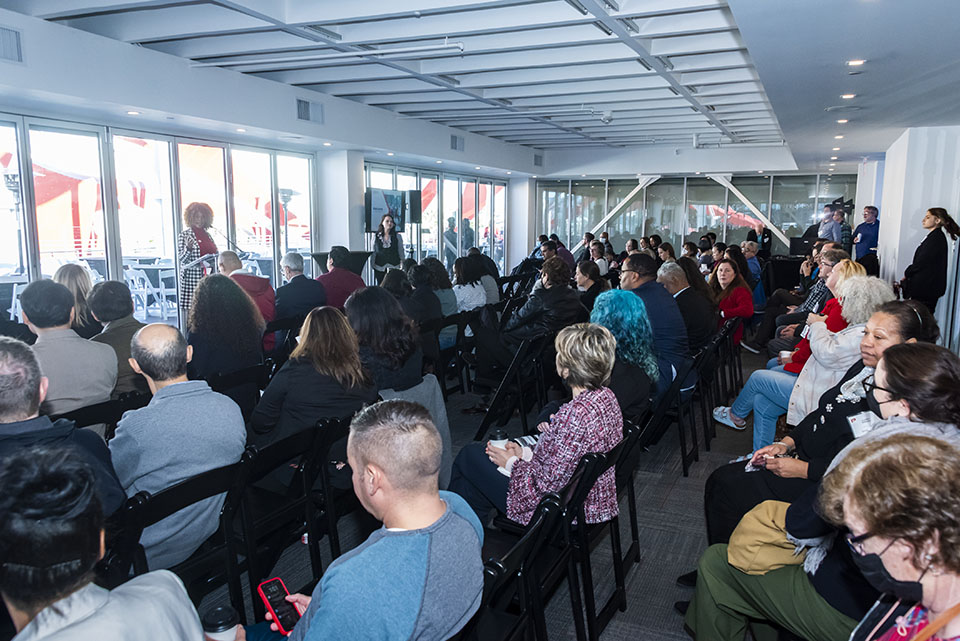
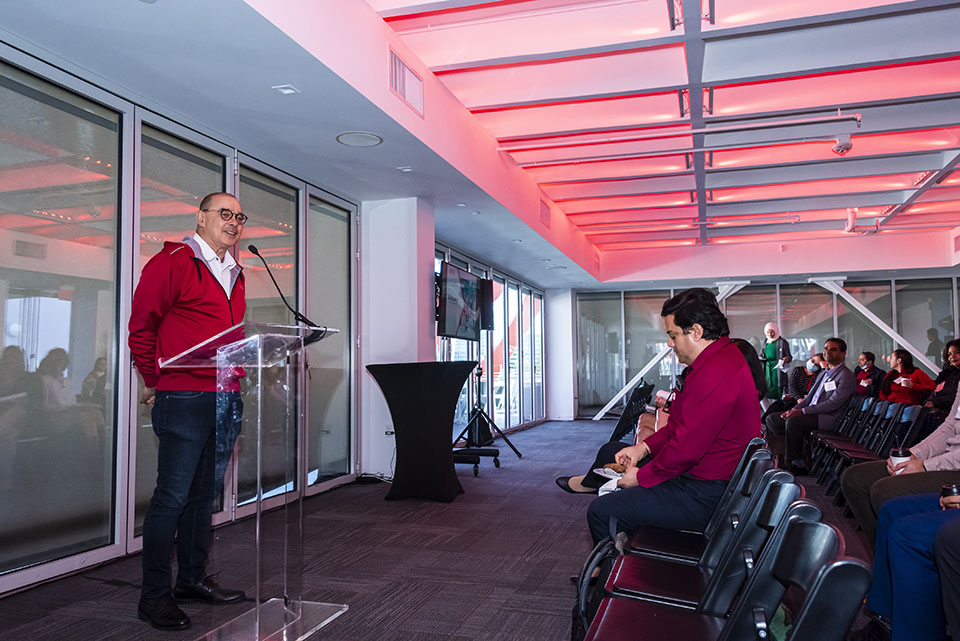
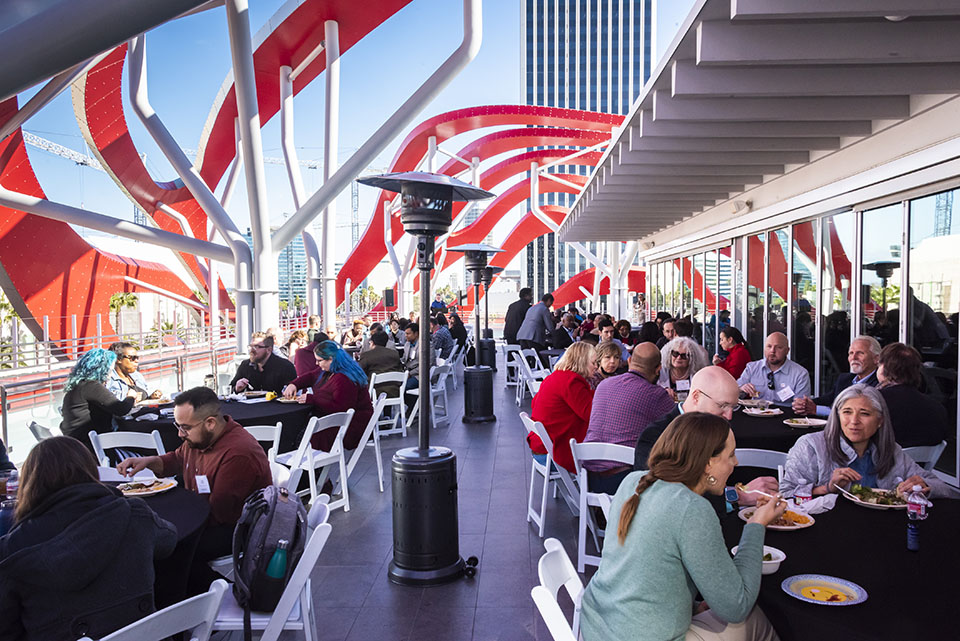
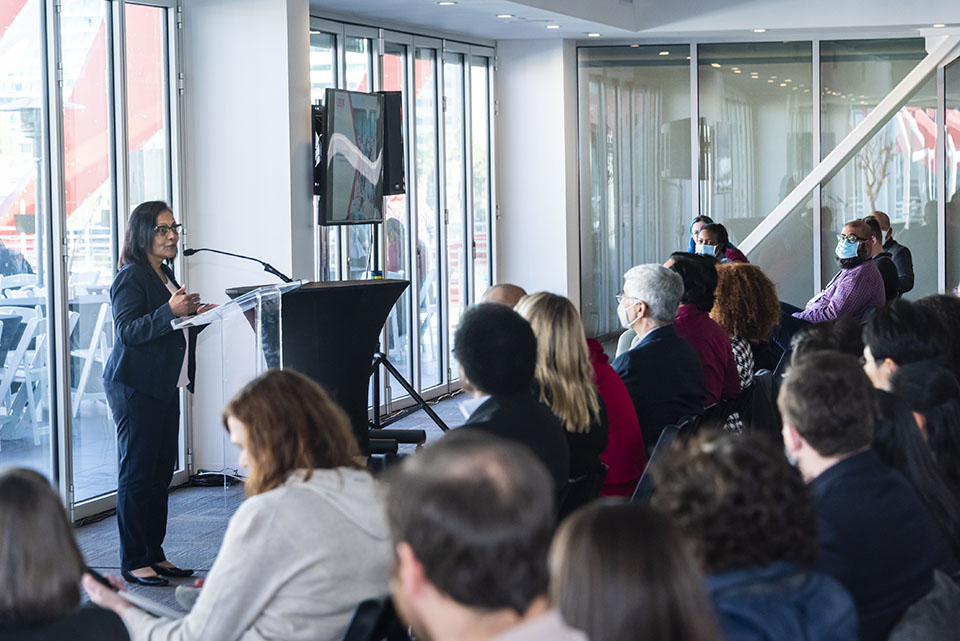
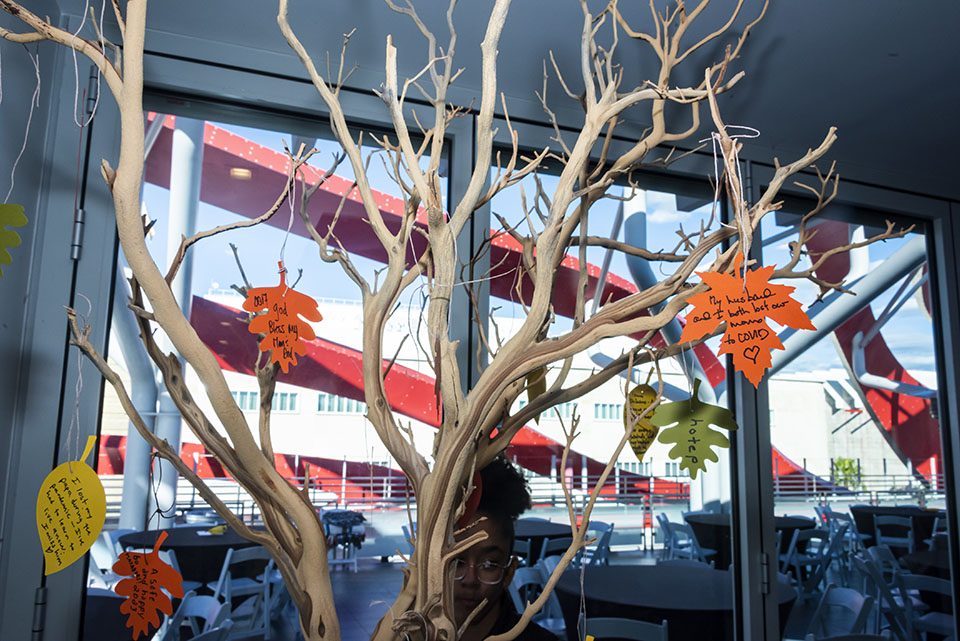
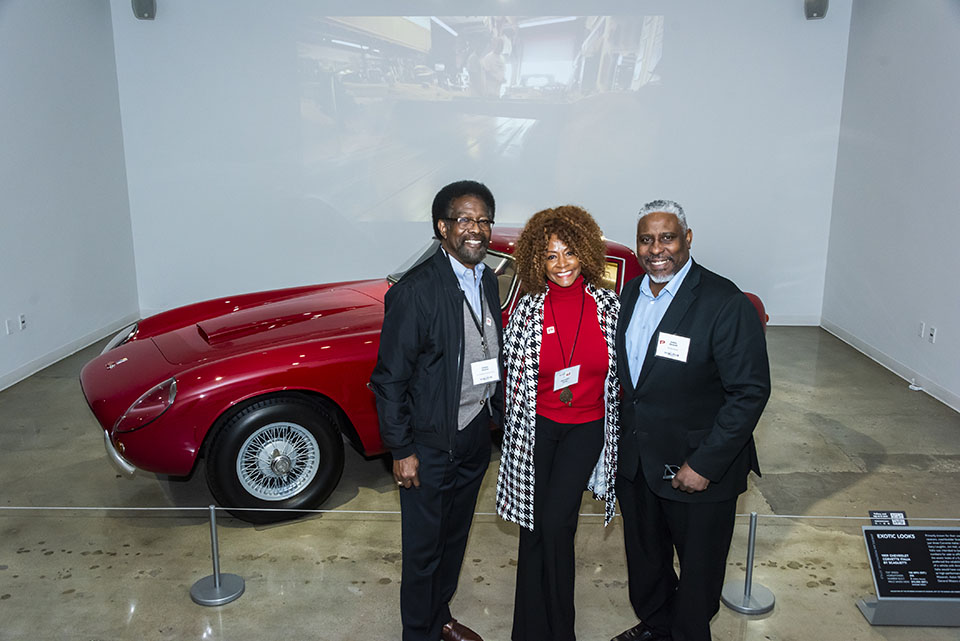
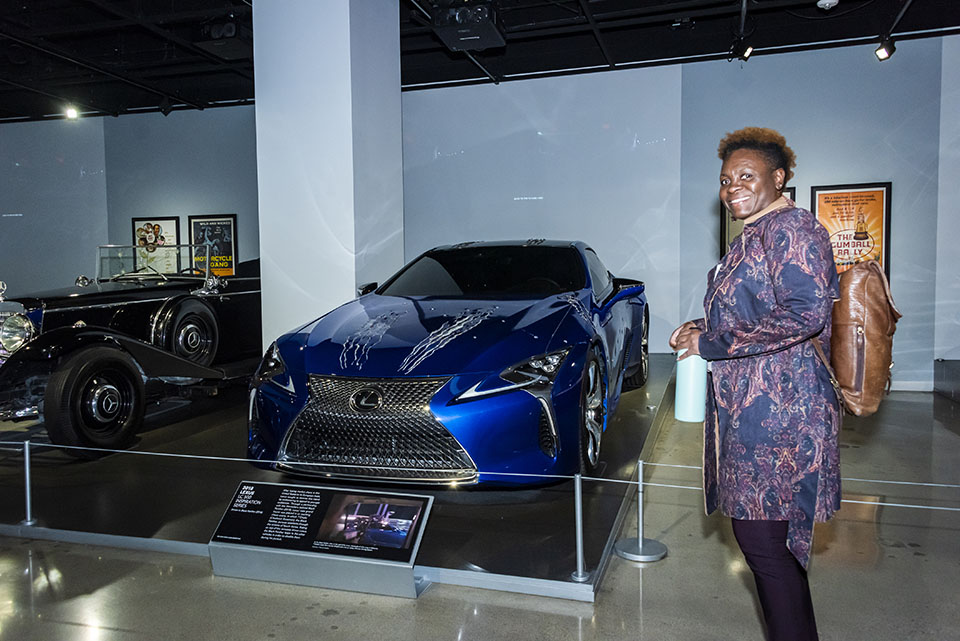
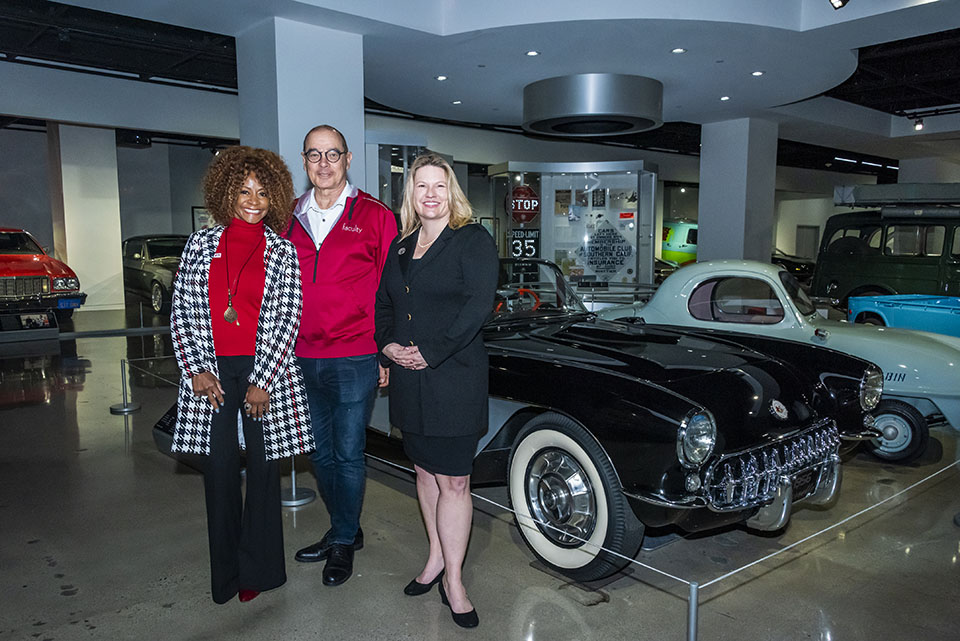
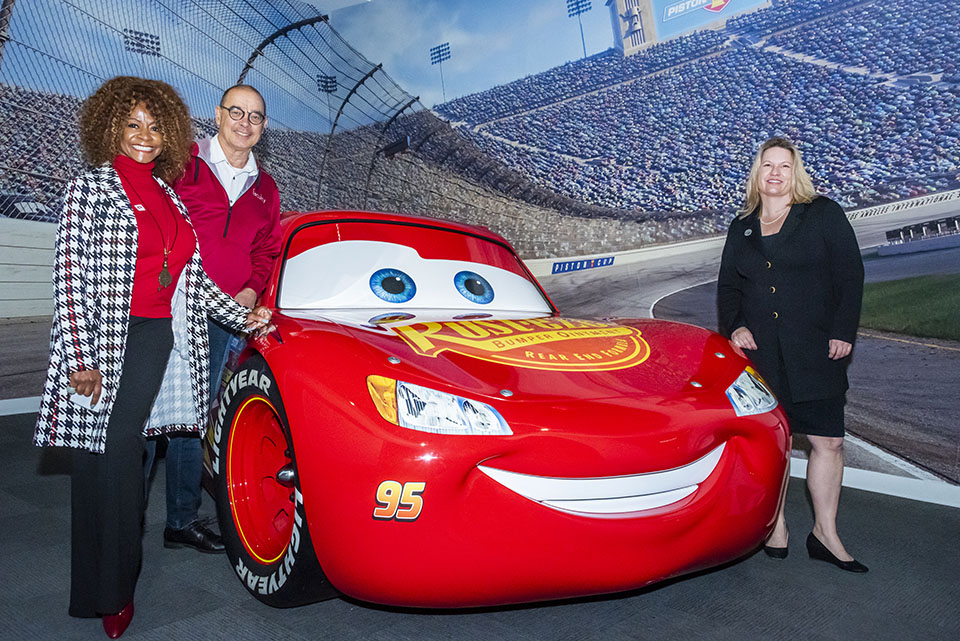
 experience
experience